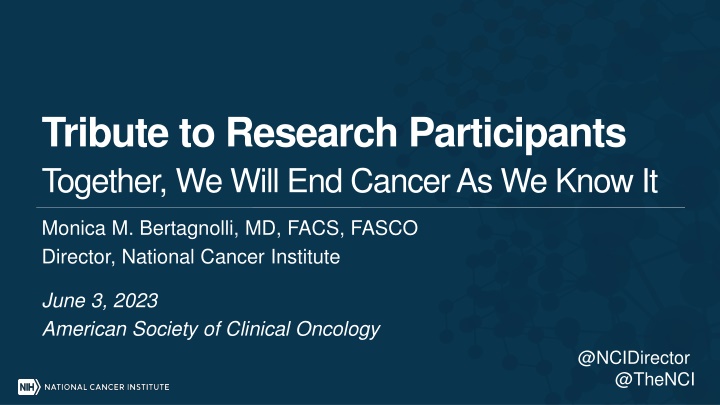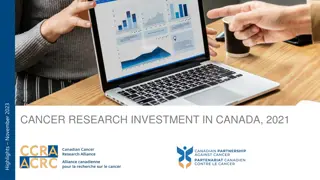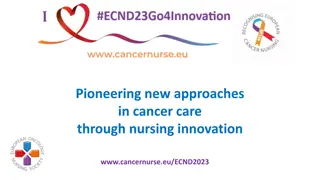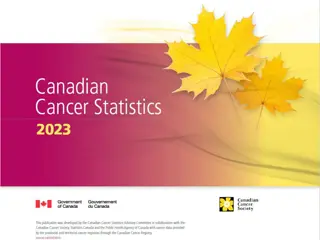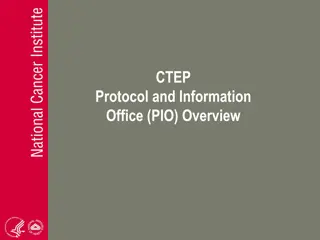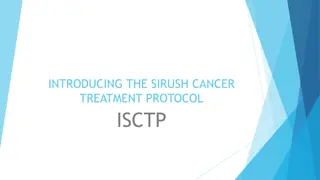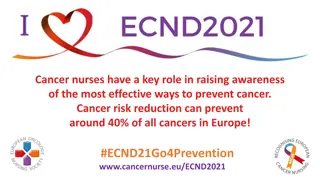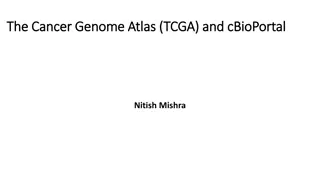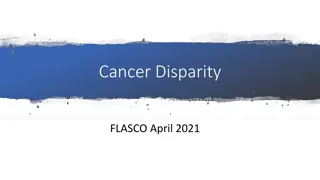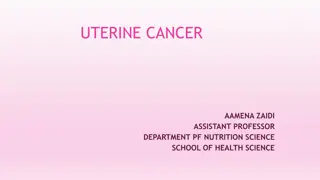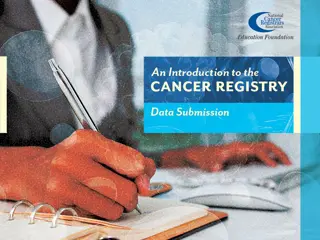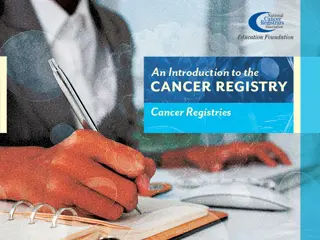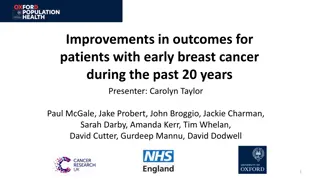Tribute to Research Participants: Ending Cancer Together
Dr. Monica M. Bertagnolli of the National Cancer Institute emphasizes the urgent need to collaborate and achieve the Cancer Moonshot goals, focusing on reducing cancer mortality and improving cancer care experiences. The key objectives include adopting proven strategies, early detection and treatment, accessible and effective treatments for all types of cancers, eliminating disparities, and providing evidence-based, patient-centered care. The vision is to end cancer as we know it through collective efforts and advancements in research and healthcare.
Uploaded on Oct 05, 2024 | 1 Views
Download Presentation

Please find below an Image/Link to download the presentation.
The content on the website is provided AS IS for your information and personal use only. It may not be sold, licensed, or shared on other websites without obtaining consent from the author.If you encounter any issues during the download, it is possible that the publisher has removed the file from their server.
You are allowed to download the files provided on this website for personal or commercial use, subject to the condition that they are used lawfully. All files are the property of their respective owners.
The content on the website is provided AS IS for your information and personal use only. It may not be sold, licensed, or shared on other websites without obtaining consent from the author.
E N D
Presentation Transcript
Tribute to Research Participants Together, We Will End Cancer As We Know It Monica M. Bertagnolli, MD, FACS, FASCO Director, National Cancer Institute June 3, 2023 American Society of Clinical Oncology @NCIDirector @TheNCI
Achieving the Cancer Moonshot Goals REDUCE CANCER MORTALITY BY AT LEAST 50% over the next 25 years and improve the experience of people and their families living with and surviving cancer. 4
All people and society adopt proven strategies that reduce the risk of cancer.
Cancers are detected and treated at early stages, enabling more effective treatment and reducing morbidity and mortality.
Effective treatment, with minimal side effects, is accessible to all people with all cancers, including those with rare cancers, metastatic cancers, and treatment-resistant disease.
Disparities in cancer risk factors, incidence, treatment side effects, and mortality are eliminated through equitable access to prevention, screening, treatment, and survivorship care.
The health care system delivers to all people evidence-based, patient- centered care that prioritizes prevention, reduces cancer morbidity and mortality, and improves the lives of cancer survivors, including people living with cancer.
Secure sharing of privacy-protected health data is standard practice throughout research, and researchers share and use available data to achieve rapid progress against cancer.
The cancer care and research workforce is diverse, reflects the communities served, and meets the needs of all people with cancer and those at risk for cancer, ensuring they live longer and healthier lives.
Every person with cancer or at risk for cancer has an opportunity to participate in research or otherwise contribute to the collective knowledge base, and barriers to their participation are eliminated.
Examples of NCIs Contributions to Our Shared Goals Connecting Underrepresented Populations to Clinical Trials (CUSP2CT) Telehealth Research Centers of Excellence (TRACE) Pragmatica-Lung Study (S2302) Clinical Trials Innovation Unit (CTIU) Childhood Cancer Data Integration for Research, Education, Care, and Clinical Trials (CC-DIRECT) NCI Community Oncology Research Program (NCORP) 14
19712018 494,018 women
Breast Cancer Mortality (1975 2020) seer.cancer.gov
www.cancer.gov www.cancer.gov/espanol 1-800-4-CANCER NCIinfo@nih.gov @NCIDirector @TheNCI Thank you!
